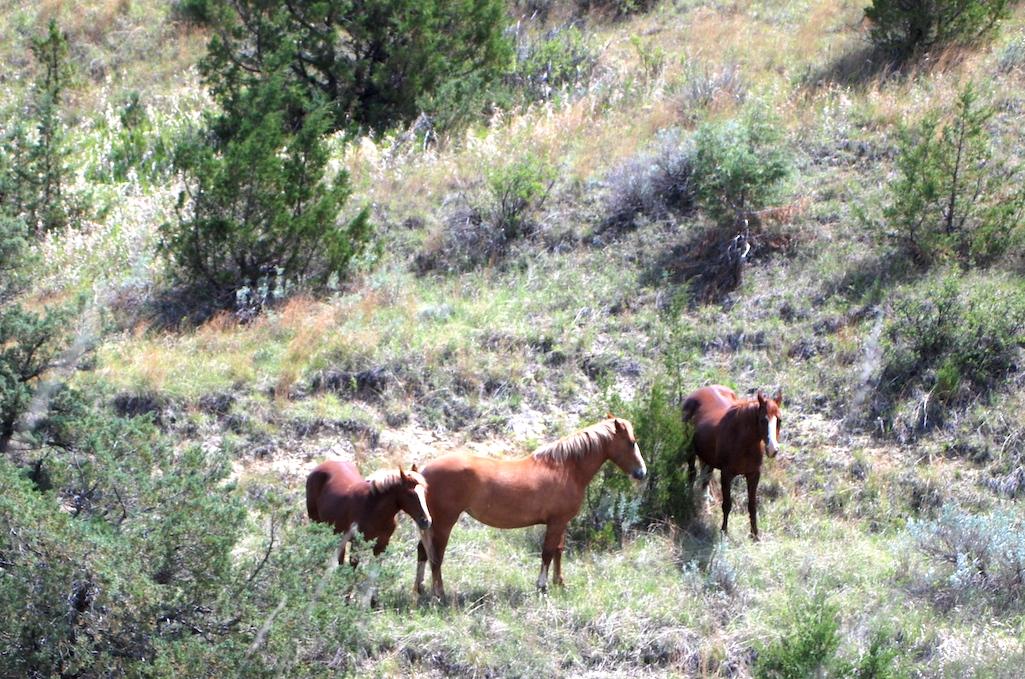
What should be done with the feral horses that reside in Theodore Roosevelt National Park?/Kurt Repanshek file
The National Park Service is charged with preserving natural resources, a challenging mission at best, but one that can get emotionally charged when the topic of removing nonnative horses and cattle comes up. At Theodore Roosevelt National Park in North Dakota, officials are gathering public comment on what to do with the roughly 200 feral horses and nine cattle that roam that park.
The park hasn't updated its horse management plan since 1978, and its cattle management plan dates to 1970. Now the staff is considering three options:
1) Continue to follow those plans;
2) Remove the feral horses and cattle as quickly as possible;
3) Remove the cattle, and reduce the horse herd significantly to a number of "fully contracepted horses" that would be allowed to live out their lives in the park.
A virtual public scoping meeting is scheduled for January 12, 2023. Attendees can join by computer or phone to learn about the Livestock Plan.
Public comment on the alternatives is being taken through January. You can find details on the plan and leave your comments at this site.



Comments
Remove the cattle entirely. As for horses, with that small number, either remove or end their breeding. I think it would be kinder to remove them to a free ranging sanctuary on private land so they would be among a larger herd. Horses would not thrive if down to 1 to 3.
We camped in the park for three days this fall. We very much enjoyed seeing the horses. Let them stay!
Are they causing problems? If policy becomes removing all non-native species, the question I ask is "non-native to what time period?"
In our National Parks in general, that would be a lot of species to get rid of!
Nine cattle? They could go.
What about the Buffalo?
Bison are a native species unlike horses or cattle.
Feral horses compete with native species for forage and water. And 200 is not a small number.
Remove them. With ongoing deteriorating range conditions, the native animals take priority. lt is a park for wildlife, not livestock.
Removing the horses will not end problems it will just create new problems. Yes there is competition for food throughout the year but that's not due to the horses being there. It's a balance that has been there now for decades. Without horses the native animals will begin to over populate and then what will be done, a culling of native animals. Right now across the board there should be a an indexing done and calculate what the park can safely sustain. Not just the horses. Once this has been determined then a population control for all can be suggested a put in place. Horses are not the problem, the land, park and climate are the issues. The animals are now part of the balance in the park. Technically, adding some healthy predators would be good for the park to control population in a natural way and at a rate that will be become part of the balance. Of course that would be out of the question because predators could pose a threat to people. And above all the park belongs to people, not the animals or nature history that the park holds.
Removing cattle and horses is not a good idea because you need the grazing in order to balance the natural ecosystem. If you remove them completely, you will start seeing invasive species of plants. also, grazing helps sequester carbon. The key is to manage the herds. This is a win/win situation for tourism profits and the environmental impacts.
Horse have been in this beautiful natural habitat for a century as have the cowboys & Indians, this is ND pride, keep and preserve our great herirage!